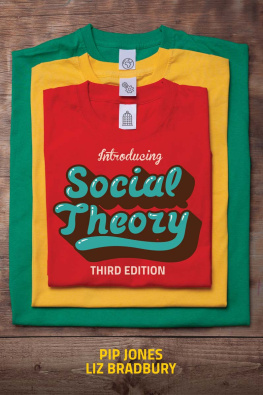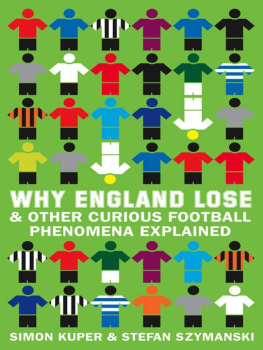Jessica Kuper - Key Thinkers, Past and Present (RLE Social Theory)
Here you can read online Jessica Kuper - Key Thinkers, Past and Present (RLE Social Theory) full text of the book (entire story) in english for free. Download pdf and epub, get meaning, cover and reviews about this ebook. year: 2014, publisher: Taylor & Francis, genre: Politics. Description of the work, (preface) as well as reviews are available. Best literature library LitArk.com created for fans of good reading and offers a wide selection of genres:
Romance novel
Science fiction
Adventure
Detective
Science
History
Home and family
Prose
Art
Politics
Computer
Non-fiction
Religion
Business
Children
Humor
Choose a favorite category and find really read worthwhile books. Enjoy immersion in the world of imagination, feel the emotions of the characters or learn something new for yourself, make an fascinating discovery.

- Book:Key Thinkers, Past and Present (RLE Social Theory)
- Author:
- Publisher:Taylor & Francis
- Genre:
- Year:2014
- Rating:5 / 5
- Favourites:Add to favourites
- Your mark:
- 100
- 1
- 2
- 3
- 4
- 5
Key Thinkers, Past and Present (RLE Social Theory): summary, description and annotation
We offer to read an annotation, description, summary or preface (depends on what the author of the book "Key Thinkers, Past and Present (RLE Social Theory)" wrote himself). If you haven't found the necessary information about the book — write in the comments, we will try to find it.
Key Thinkers, Past and Present (RLE Social Theory) — read online for free the complete book (whole text) full work
Below is the text of the book, divided by pages. System saving the place of the last page read, allows you to conveniently read the book "Key Thinkers, Past and Present (RLE Social Theory)" online for free, without having to search again every time where you left off. Put a bookmark, and you can go to the page where you finished reading at any time.
Font size:
Interval:
Bookmark:
SOCIAL THEORY

by Routledge
2 Park Square, Milton Park, Abingdon, Oxon, OX14 4RN
711 Third Avenue, New York, NY 10017
A catalogue record for this book is available from the British Library
eISBN: 978-1-315-76997-4 (Set)
ISBN: 978-1-138-78614-1 (Volume 35)
eISBN: 978-1-315-76356-9 (Volume 35)
The publisher has gone to great lengths to ensure the quality of this reprint but points out that some imperfections in the original copies may be apparent.
The publisher has made every effort to trace copyright holders and would welcome correspondence from those they have been unable to trace.
Past and Present

LONDON AND NEW YORK
Routledge & Kegan Paul Limited
11 New Fetter Lane, London EC4P 4EE
Routledge & Kegan Paul Inc.
in association with Methuen Inc.
29 West 35th Street, New York, NY 10001
by Input Typesetting Ltd., London SW19 8DR
and printed in Great Britain
by Cox & Wyman Ltd, Reading, Berks
any form without permission from the publisher
except for the quotation of brief passages
in criticism
Key thinkers, past and present.
Selections from: The Social science
encyclopedia. 1985.
Includes bibliographies and index.
1. Social scientistsBiography.
2. Social sciencesDictionaries. I. Kuper,
Jessica. II. Title. III. Series.
H57.S5825 1987 300.922 [B] 86-33860
ISBN 0710211732
Harvard University
Font size:
Interval:
Bookmark:
Similar books «Key Thinkers, Past and Present (RLE Social Theory)»
Look at similar books to Key Thinkers, Past and Present (RLE Social Theory). We have selected literature similar in name and meaning in the hope of providing readers with more options to find new, interesting, not yet read works.
Discussion, reviews of the book Key Thinkers, Past and Present (RLE Social Theory) and just readers' own opinions. Leave your comments, write what you think about the work, its meaning or the main characters. Specify what exactly you liked and what you didn't like, and why you think so.






